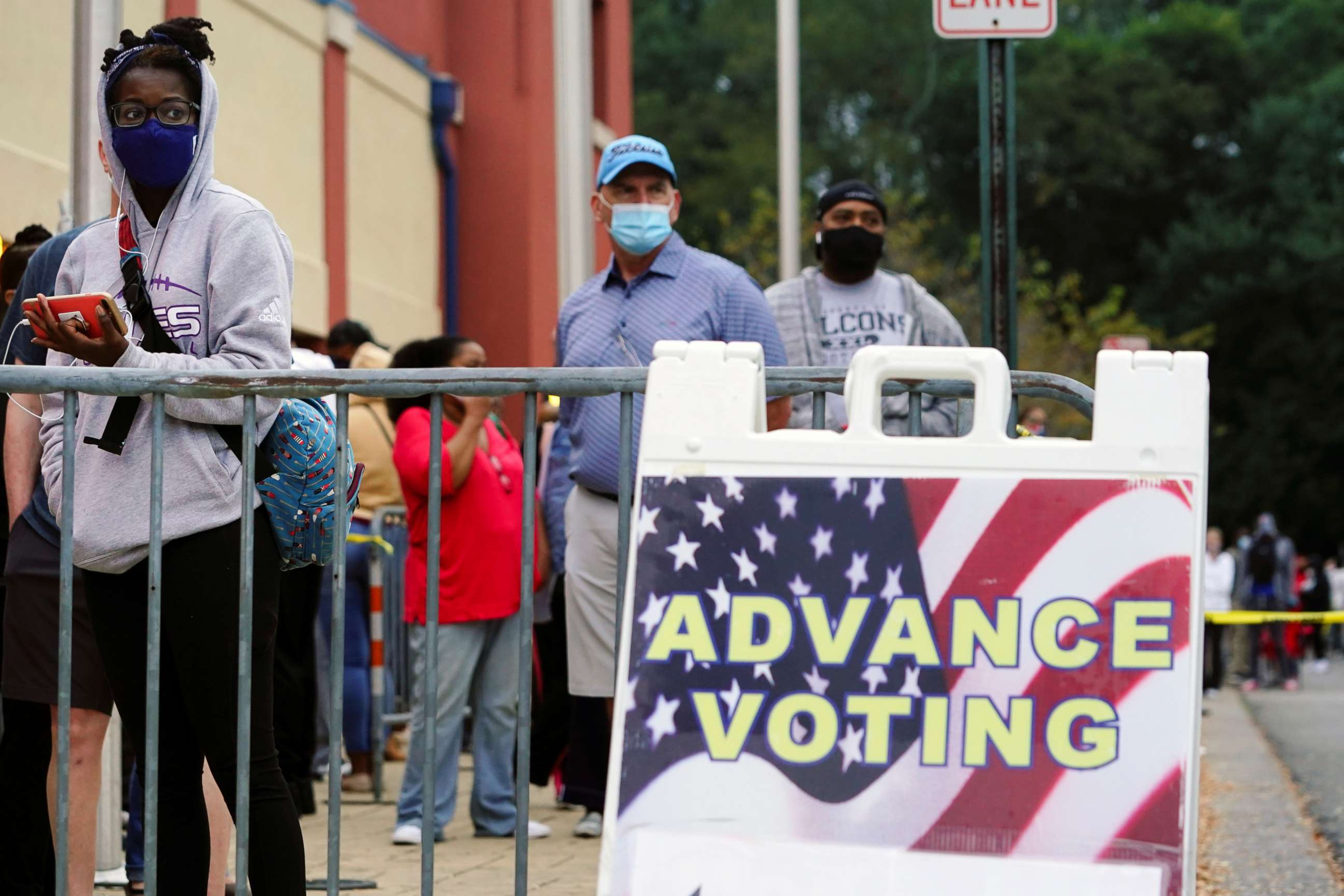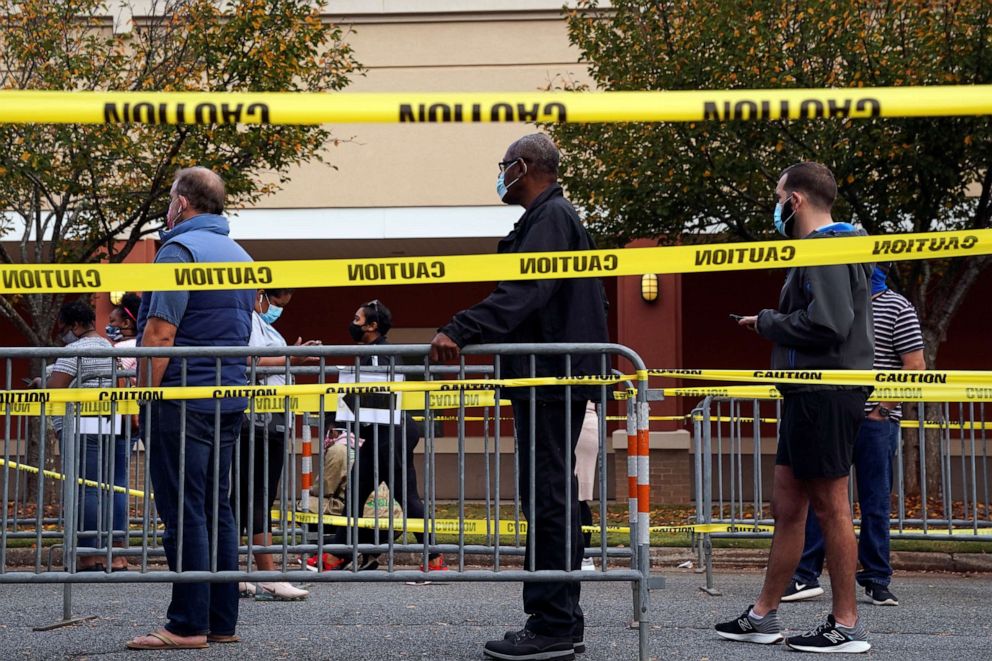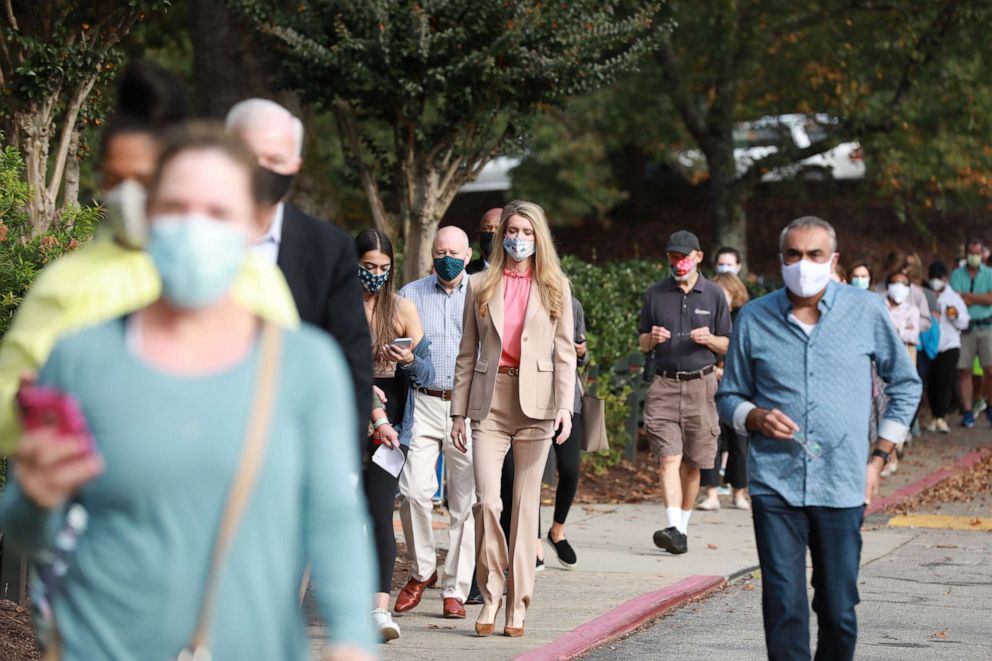Voting rights advocate Stacey Abrams calls out 'voter suppression' during in-person early voting
"Pack your patience, pack your sense of humor," said a voter.
More than 128,000 people in Georgia arrived at the polls Monday to cast an early vote in-person, smashing the state's record for a first day of early voter turnout.
The number of voters, however, left some waiting up to six hours to cast a ballot. As more states begin early voting, long lines of eager voters and the frustration that comes with waiting may only grow.
It was more of the same in Texas, where over 128,000 voters showed up on the first day of in-person early voting in Harris County -- the state's most-populous and the home of Houston.
"I think it just shows everyone's ready to vote and doesn't want their vote to be suppressed," said Houston voter Chloe Normand.

While in-person early voting began in Texas on Tuesday, the governor has pushed to stop voters from having another option when casting their ballots. Texas Gov. Greg Abbott has fought in court to only allow one drop-off box for mail-in votes per county, a move that might've prevented some voters from deciding to wait in line all day to vote in-person. The decision by Abbott has earned widespread claims of voter suppression, though he has argued multiple drop-off boxes would sow voting confusion and people can mail them in as intended.
Voting rights activist Stacey Abrams, a former Georgia state representative, is leading the charge against voter suppression. In 2018, she was the Democratic gubernatorial nominee, but lost to Brian Kemp in a close race amid allegations that Kemp, then the secretary of state, suppressed votes.
She claimed that elections are complicated on purpose.
"There have been battles being waged across the country, including in Georgia, about who has access to in-person early voting," Abrams told "World News Tonight." "But we know across the country [that] early voting is going to become the next front in the war against voters."

A 2017 federal report confirmed that between the last two presidential elections, 11% of voting precincts that were closed affected voters of color the most. Abrams said the system that handles elections is designed in a way that makes it difficult for voters to know who to blame for issues that arise.
Complications are already cropping up in California after the secretary of state and Department of Justice sent a cease-and-desist order to the state Republican Party after it admitted to propping up unauthorized ballot drop boxes in local party offices, candidate headquarters and churches around the state.
"Misleading voters is wrong, regardless of who's doing it," California Secretary of State Alex Padilla said in a Monday evening news conference. "Political parties and campaigns can engage in get out the vote efforts, but they cannot violate state law."
Republicans have so far refused to remove the unauthorized ballot drop boxes, saying they are taking advantage of California's liberal ballot collection law.

Distrust in the election process comes from both parties, especially as President Donald Trump continues to falsely claim that mail-in voting is a fraud. During the first presidential debate, Trump told supporters he doesn't trust the process either.
"I'm urging my supporters to go into the polls and watch very carefully because that is what has to happen," he said.
Despite the concerns and the setbacks, voters emphasized that regardless of how long it might take, it's important to vote.
"Pack your patience, pack your sense of humor," said Atlanta voter Tyler Reinago. "But stay excited. Stay enthusiastic."
ABC News' Alexander Mallin contributed to this report.




